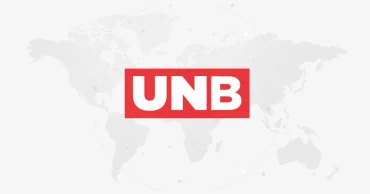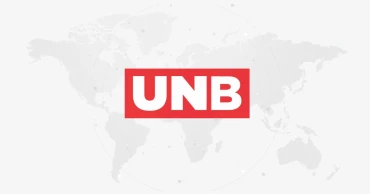Oil giant
Saudis, other oil giants announce surprise production cuts; prices could go up
Saudi Arabia and other major oil producers on Sunday announced surprise cuts totaling up to 1.15 million barrels per day from May until the end of the year, a move that could raise prices worldwide.
Higher oil prices would help fill Russian President Vladimir Putin's coffers as his country wages war on Ukraine and force Americans and others to pay even more at the pump amid worldwide inflation.
It was also likely to further strain ties with the United States, which has called on Saudi Arabia and other allies to increase production as it tries to bring prices down and squeeze Russia's finances.
The production cuts alone could push U.S. gasoline prices up by roughly 26 cents per gallon, in addition to the usual increase that comes when refineries change the gasoline blend during the summer driving season, said Kevin Book, managing director of Clearview Energy Partners LLC. The Energy Department calculates the seasonal increase at an average of 32 cents per gallon, Book said.
So with an average U.S. price now at roughly $3.50 per gallon of regular, according to AAA, that could mean gasoline over $4 per gallon during the summer.
However, Book said there are a number of complex variables in oil and gas prices. The size of each country's production cut depends on the baseline production number it is using, so the cut might not be 1.15 million. It also could take much of the year for the cuts to take effect. Demand could fall if the U.S. enters a recession caused by the banking crisis. But it also could increase during the summer as more people travel.
Even though the production cut is only about 1% of the roughly 100 million barrels of oil the world uses per day, the impact on prices could be big, Book said.
Also Read: As Biden weighs Willow, he blocks other Alaska oil drilling
“It's a big deal because of the way oil prices work,” he said. “You are in a market that is relatively balanced. You take a small amount away, depending on what demand does, you could have a very significant price response.”
Saudi Arabia announced the biggest cut among OPEC members at 500,000 barrels per day. The cuts are in addition to a reduction announced last October that infuriated the Biden administration.
The Saudi Energy Ministry described the move as a “precautionary measure” aimed at stabilizing the oil market. The cuts represent less than 5% of Saudi Arabia's average production of 11.5 million barrels per day in 2022.
Also Read: Oil giant Saudi Aramco has profits of $161B in 2022
Iraq said it would reduce production by 211,000 barrels per day, the United Arab Emirates by 144,000, Kuwait by 128,000, Kazakhstan by 78,000, Algeria by 48,000 and Oman by 40,000. The announcements were carried by each country's state media.
Russia’s Deputy Prime Minister Alexander Novak meanwhile said Moscow would extend a voluntary cut of 500,000 until the end of the year, according to remarks carried by the state news agency Tass. Russia had announced the unilateral reduction in February after Western countries imposed price caps.
All are members of the so-called OPEC+ group of oil exporting countries, which includes the original Organization of the Petroleum Exporting Countries as well as Russia and other major producers. There was no immediate statement from OPEC itself.
The cuts announced in October — of some 2 million barrels a day — had come on the eve of U.S. midterm elections in which soaring prices were a major issue. President Joe Biden vowed at the time that there would be “consequences” and Democratic lawmakers called for freezing cooperation with the Saudis.
Both the U.S. and Saudi Arabia denied any political motives in the dispute.
Since those cuts, oil prices have trended down. Brent crude, a global benchmark, was trading around $80 a barrel at the end of last week, down from around $95 in early October, when the earlier cuts were agreed.
Analysts Giacomo Romeo and Lloyd Byrne at Jefferies said in a research note that the new cuts should allow for “material” reductions to OPEC inventory earlier than expected and could validate recent warnings from some traders and analysts that demand for oil is weakening.
Kristian Coates Ulrichsen, a Gulf expert at Rice University's Baker Institute for Public Policy, said the Saudis are determined to keep oil prices high enough to fund ambitious mega-projects linked to Crown Prince Mohammed bin Salman's Vision 2030 plan to overhaul the economy.
“This domestic interest takes precedence in Saudi decision-making over relationships with international partners and is likely to remain a point of friction in U.S.-Saudi relations for the foreseeable future,” he said.
Saudi Arabia's state-run oil giant Aramco recently announced record profits of $161 billion from last year. Profits rose 46.5% when compared to the company’s 2021 results of $110 billion. Aramco said it hoped to boost production to 13 million barrels a day by 2027.
The decades-long U.S.-Saudi alliance has come under growing strain in recent years following the 2018 killing of Saudi dissident Jamal Khashoggi, a U.S.-based journalist, and Saudi Arabia's war with the Iran-backed Houthi rebels in Yemen.
As a candidate for president, Biden had vowed to make Saudi Arabia a “pariah” over the Khashoggi killing, but as oil prices rose after his inauguration he backed off. He visited the kingdom last July in a bid to patch up relations, drawing criticism for sharing a fistbump with Crown Prince Mohammed.
Saudi Arabia has denied siding with Russia in the Ukraine war, even as it has cultivated closer ties with both Moscow and Beijing in recent years. Last week, Aramco announced billions of dollars of investment in China's downstream petrochemicals industry.
2 years ago
Oil giant Saudi Aramco has profits of $161B in 2022
Oil giant Saudi Aramco reported Sunday its profits surged to $161 billion last year off higher crude prices, a record result for an energy firm crucial to the kingdom's economy.
The firm, known formally as the Saudi Arabian Oil Co., said in its annual report that the profit represented “its highest annual profits as a listed company." That came off the back of energy prices rising after Russia launched its war on Ukraine in February 2022, with sanctions limiting the sale of Moscow's oil and natural gas in Western markets.
Aramco also hopes to increase its production to take advantage of market demand, raising the billions needed to pay for Crown Prince Mohammed bin Salman's plans to develop futuristic cityscapes to pivot Saudi Arabia away from oil.
However, those plans come despite growing international concerns over the burning of fossil fuels accelerating climate change.
Also Read: Europe bans Russian diesel, other oil products over Ukraine
“Given that we anticipate oil and gas will remain essential for the foreseeable future, the risks of underinvestment in our industry are real — including contributing to higher energy prices," Saudi Aramco CEO and President Amin H. Nasser said in a statement.
Profits rose 46.5% when compared to the company's 2021 results of $110 billion. It earned $49 billion in 2020 when the world faced the worst of the coronavirus pandemic lockdown, travel disruptions and oil prices briefly going negative.
Aramco put its crude production at around 11.5 million barrels a day in 2022 and said it hoped to reach 13 million barrels a day by 2027.
To boost that production, it plans to spend as much as $55 billion this year on capital projects.
Aramco also declared a dividend of $19.5 billion for the fourth quarter of 2022, to be paid in the first quarter of this year.
Aramco's results, viewed as a bellwether for the global energy market, mirror the huge profits seen at those of U.K. energy giant BP,America's Exxon Mobil, Shell and others in 2022.
Benchmark Brent crude oil now trades around $82 a barrel, though prices had reached over $120 a barrel back in June. Aramco, whose fortunes hinge on global energy prices, announced a record $42.4 billion profit in the third quarter of 2022 off the back of that price spike.
Those high prices have further strained ties between the kingdom and the United States, traditionally a security guarantor among the Gulf Arab states amid tensions with Iran. Before the midterm elections in November, the kingdom said the Biden administration sought to delay a decision by OPEC and allies including Russia to cut production that could have kept gasoline prices lower for voters — making public the typically behind-the-scenes negotiations common in the region.
President Joe Biden had warned the kingdom that “there’s going to be some consequences for what they’ve done” in terms of oil prices. However, those consequences have yet to be seen as Saudi Arabia and Iran went to China to strike a diplomatic deal Friday. U.S. gasoline prices now stand on average at $3.47 a gallon, down just about a dollar from last year.
For the kingdom, higher crude oil prices can help fuel the dreams of Prince Mohammed, including his planned $500 billion futuristic desert city project called Neom. However, they also run against the fears of activists over climate change, particularly as the United Nations' COP28 climate talks will begin this November in the neighboring United Arab Emirates.
Saudi Arabia has pledged to have net-zero carbon emissions by 2060, like China and Russia, though its plans to reach that goal remain unclear. Aramco's earnings report noted it started a $1.5 billion Sustainability Fund in October and plans a carbon-capture-and-storage facility as well.
Saudi Arabia’s vast oil resources, located close to the surface of its desert expanse, make it one of the world’s least expensive places to produce crude. For every $10 rise in the price of a barrel of oil, Saudi Arabia stands to make an additional $40 billion a year, according to the Institute of International Finance.
Shares in Aramco stood at $8.74 on Riyadh's Tadawul stock exchange before it opened Sunday. That's down from a high of $11.55 a share in the last year. However, that current price still gives Aramco a valuation of $1.9 trillion — making it the world's second most valuable company behind only Apple.
The Saudi government still owns the vast majority of the firm's shares. Saudi Aramco publicly listed a sliver of its worth back in late 2019.
Aramco will release a comprehensive earnings report Monday.
2 years ago



